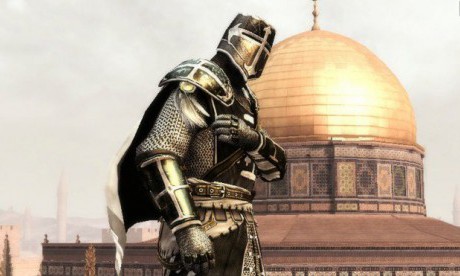In 1996, late US political scientist Samuel P. Huntington published the book The Clash of Civilizations and the Remaking of World Order.
Following the collapse of communism in 1989, he argued, conflicts would increasingly involve religion.
Islam, which Huntington claimed had been the opponent of Christianity since the seventh century, would increasingly feature in geopolitical conflict.
So, it wasn’t particularly shocking when, after the September 11 attacks on the World Trade Centre and the Pentagon, the then-US president, George W. Bush, used the term “crusade” to describe the American military response.
Framing the subsequent “war on terror” as a crusade acted as a red flag to journalists and political commentators, who could treat the events as simply the most recent stoush in a centuries-old conflict.
The actual Crusades (1096-1487) themselves evoke a romantic image of medieval knights, chivalry, romance and religious high-mindedness.
But representing them as wars between Christians and Muslims is a gross oversimplification and a misreading of history.
Early Islamic conquests
That there were wars between Muslims and Christians is certainly true. After the death of Abu Bakr (573-634), the Prophet Muhammad’s father-in-law and first caliph, the second Caliph Umar (583-644) sent the Islamic armies in three divisions to conquer and spread the religion of Islam.
Whole regions that were Christian fell to Islam.
The Holy Land, which comprised modern-day Palestinian territories, Israel, Lebanon, Syria and Jordan, for instance, was defeated. And Egypt was conquered without even a battle in 640.
The ancient and vast Persian Empire, officially Zoroastrian in religion, had been conquered by 642.
Weakened by war with the Christian Byzantine Empire, Persia was no match for the Muslim forces.
Muslim armies marched across north Africa and crossed the Straits of Gibraltar into modern Spain, eventually securing a large territory in the Iberian Peninsula, which was known as Al-Andalus (also known as Muslim Spain or Islamic Iberia). Continue reading
Sources
- The Conversation, from an article by Carole Cusack, Professor of Religious Studies, University of Sydney.
- Image: Mad World News
